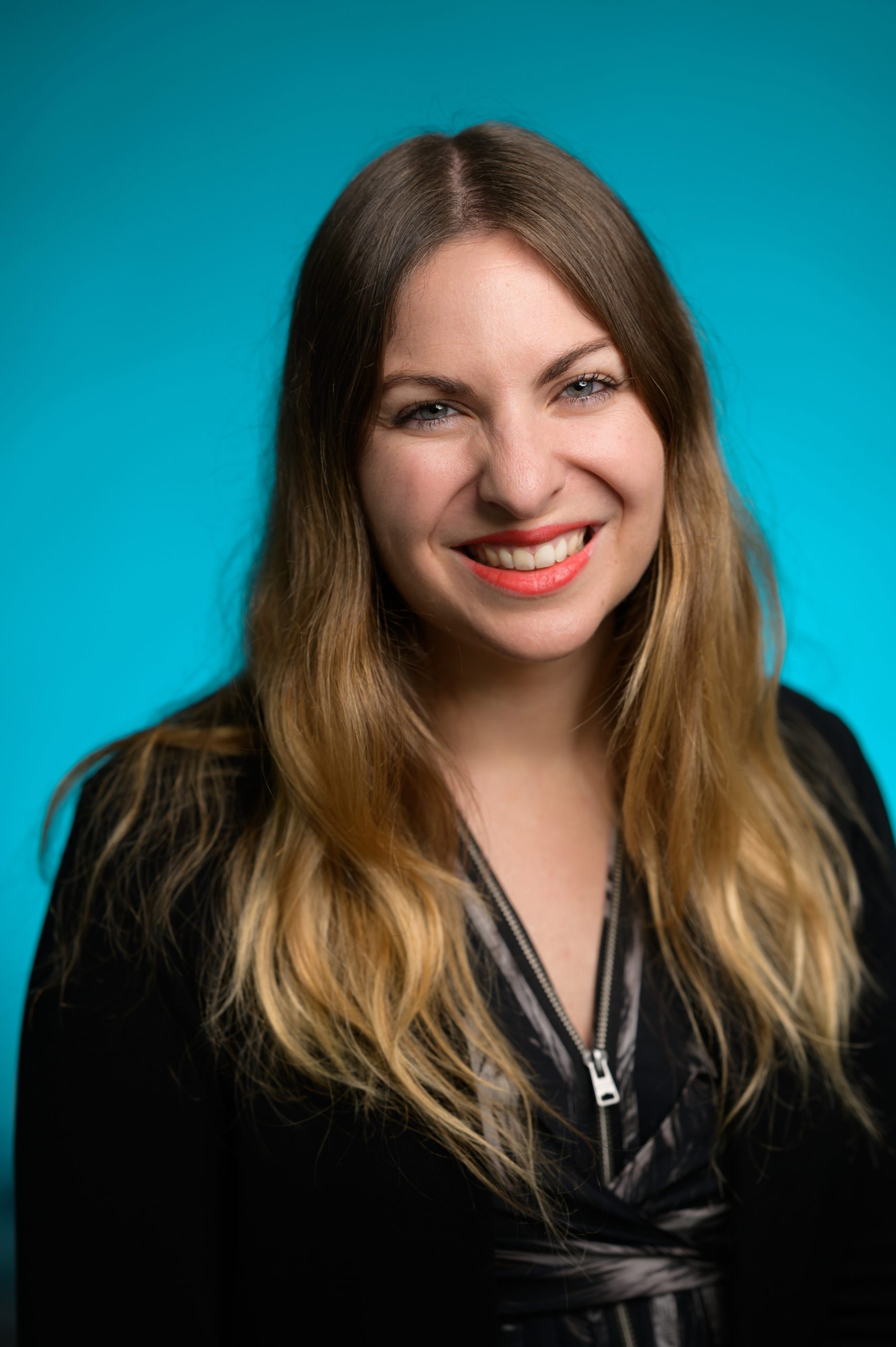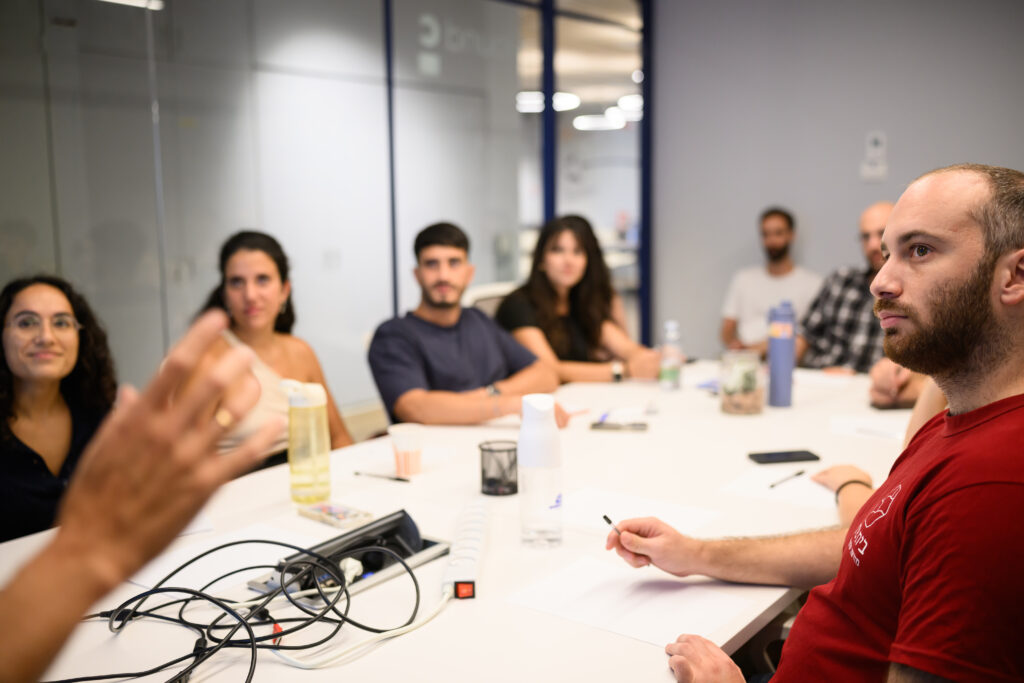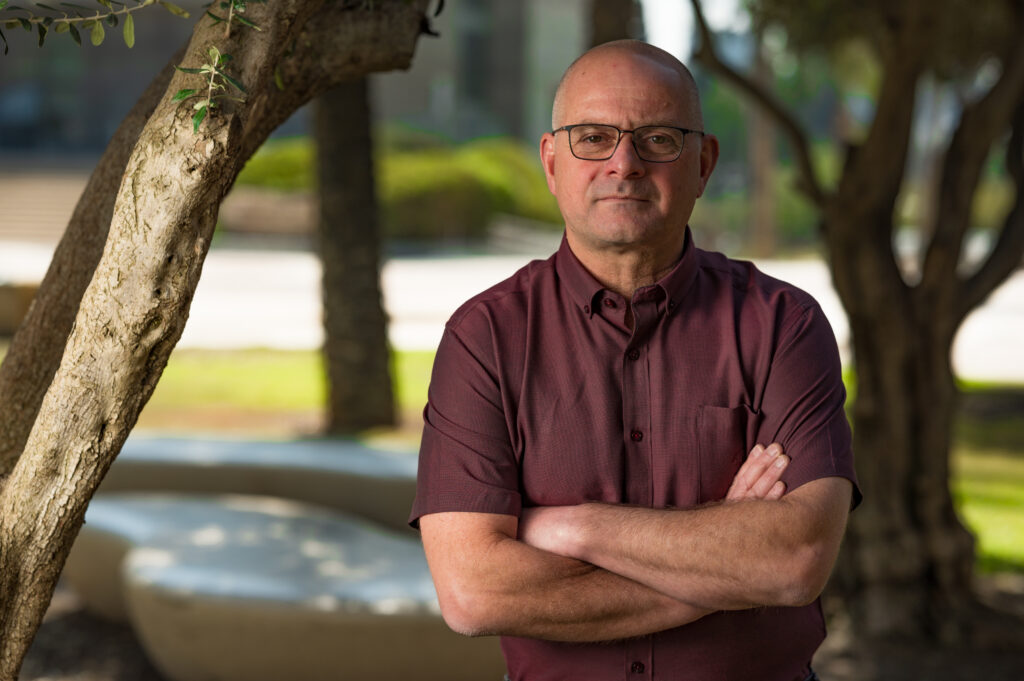
Leading the New Frontier of Human-Drone Interaction
Leading the New Frontier of Human-Drone Interaction
March 29, 2020
The Jerusalem Post–Jessica Cauchard, 36, is a global pioneer in the emerging field of human-drone interaction. How did this brilliant woman, who grew up in the small French town of Pau, with little Jewish background, courted by the best universities in the world, decide to make her home in Israel?
From an early age, Cauchard was told by her grandparents and parents not to tell anyone she was Jewish.

Dr. Jessica Cauchard
“My maternal grandfather fled Poland during World War II and was arrested in France. He never forgot that feeling of being hunted because he was Jewish,” she says.
Cauchard’s father was in the French Air Force and her mother stayed at home to take care of her and her younger brother. Jewish tradition did not play any part in her life, which was focused on her love of science. However, she did go on a March of the Living trip to Poland and on a Birthright trip, her first time visiting Israel.
“I felt an abstract connection to Israel, but for some reason that I cannot explain, I knew that I would eventually end up living here,” says Cauchard.
Intently focused on her studies, Cauchard received her bachelor of engineering degree in robotics and artificial intelligence in France and went on to receive her master’s of science degree in advanced computer science at Sheffield University. It was during this time that she became close with a Chabad family and began to explore her family’s history.
At the age of 25, Cauchard began her Ph.D. in human-computer interaction at Bristol University in England. She went on to do her post-doc work as a research fellow in the same field at Cornell Tech in New York and then at Stanford University in California. Her focus was on “collocated human-drone interactions and discrete interactions with wearable devices.” Following this, she had additional offers from leading universities in the United States.
“I knew that if I started a tenure-track position in the United States, it would be at least a seven- or eight-year commitment, and I was not sure I would ever get to Israel,” she recalls.
Cauchard took a giant leap of faith, turned down the offers and applied to all of Israel’s universities. In 2017, at the age of 33, she made aliyah, after having visited the country only once, and took up her first position.
“My first job was not a good experience, to put it mildly,” she says. “I quit, picked myself up and reapplied to other universities. I received an excellent offer from Ben-Gurion University of the Negev (BGU).”
Dr. Cauchard is now an assistant professor in the Department of Industrial Engineering and Management at BGU. She is involved with a number of groundbreaking research projects. Her passion is learning how to build technologies to support people in the future in a user-friendly way. She was one of the first scientists to initiate research on how people can interact with small drones in everyday life.
“Ben-Gurion University understands that my work is the future, the crossroads of human and computer interaction. I have several research labs under construction that will give me, my co-workers and my students the infrastructure we need to create drone prototypes. We are about to start building what is called a ‘drone cage’ to simulate environments where we can test the human-drone interaction,” she says.
Cauchard is also part of BGU’s newly launched interdisciplinary Coronavirus Response Task Force. Composed of 50 of the university’s leading scientists, the task force is supporting “novel projects with swift implementation.”
Cauchard is working with Dr. Stav Shapira, who investigates the integration of emerging technologies in emergency scenarios, to create medical emergency drones. The goal is to develop techniques and methodologies for medical relief via drone-delivery, with a special “social acceptance” component.
“We are in the early stages, but we envision a drone that can provide emergency services and assistance, such as to the elderly or people who cannot leave their homes, and to build drones with interactive applications.”
Cauchard feels that the opportunities for human-drone interaction are vast, and she is excited to be a part of this field.
Three years on, she is also excited about her aliyah.
“It took me two years to really adjust, and it wasn’t easy,” she admits.
Despite the fact that she studied French, English, German, Spanish, Russian, and what she calls “survival Chinese,” Cauchard is still struggling with Hebrew, and wishes that people would be more patient.
“I did not know a word of Hebrew when I arrived, and I am trying, between my work and research, to catch up,” she laughs.
“I am super happy here,” she concludes. “I feel at home and can’t imagine myself anywhere else.”



